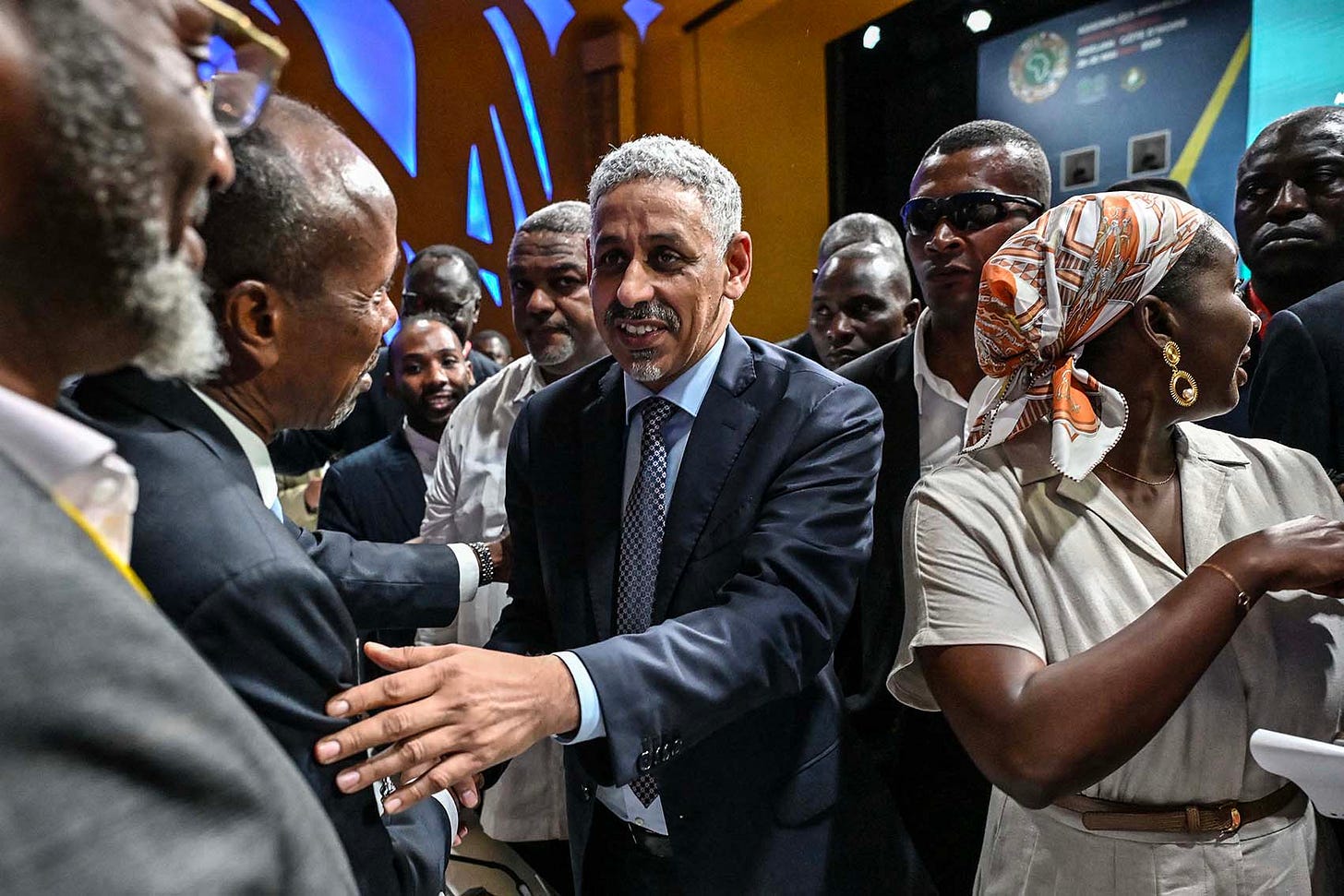Farewell Adesina, hello Ould Tah
Sidi Ould Tah’s presidency could be an opportunity to bring Africa fairer and more autonomous financing. If the centre holds.
Christine Mungai

Sidi Ould Tah of Mauritania was elected the new president of the African Development Bank Group (AfDB) at the bank’s annual meeting, held this week in Abidjan, Côte d’Ivoire.
He takes over from bowtie-clad Nigerian economist Akinwumi Adesina who has served two terms, during which the AfDB’s capital increased from $93-billion in 2014 to $318-billion.
The AfDB gives direct loans and grants to African governments and, through other financial instruments, sometimes underwrites their loans from other lenders. It focuses on supporting major projects in infrastructure, agriculture, energy, and other critical sectors.
Ould Tah previously served for 10 years as the president of the Arab Bank for Economic Development in Africa (BADEA) for 10 years from 2015, quadrupling the bank’s balance sheet and securing a AAA rating.
The Mauritanian’s tenure starts on shaky geopolitical ground. The US is the bank’s third largest shareholder, after Nigeria and Egypt, followed by eight other Western powers who together hold nearly a quarter of the shares. This doesn’t bode well at a time when the Trump administration is retreating from multilateral institutions and isolationist sentiment is growing across the West.
But this moment may also open a window for the bank to become the primary lender to governments on the continent, drawing them away from Western finance markets that charge African countries an unjust risk premium. An Africa No Filter study estimated that African countries pay an extra $4.2-billion each year on loans because of this.
Ould Tah’s presidency could be an opportunity to bring Africa fairer and more autonomous financing. If the centre holds.




